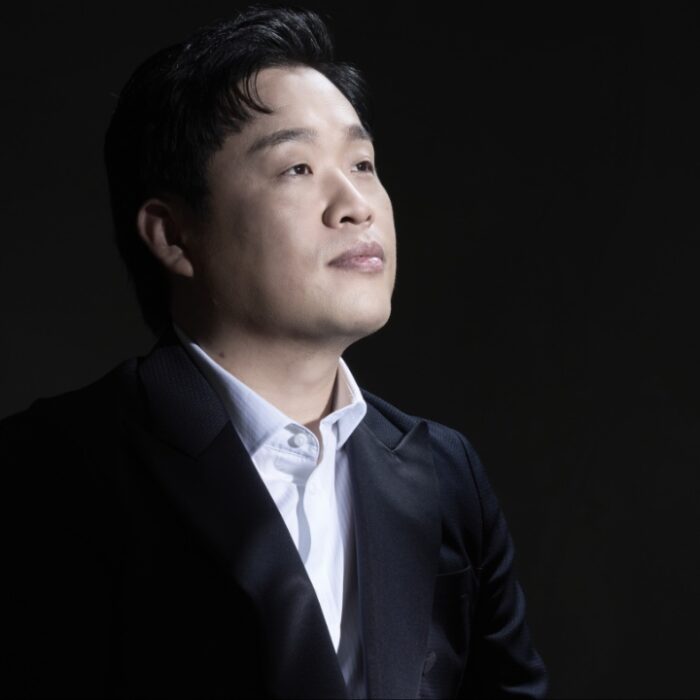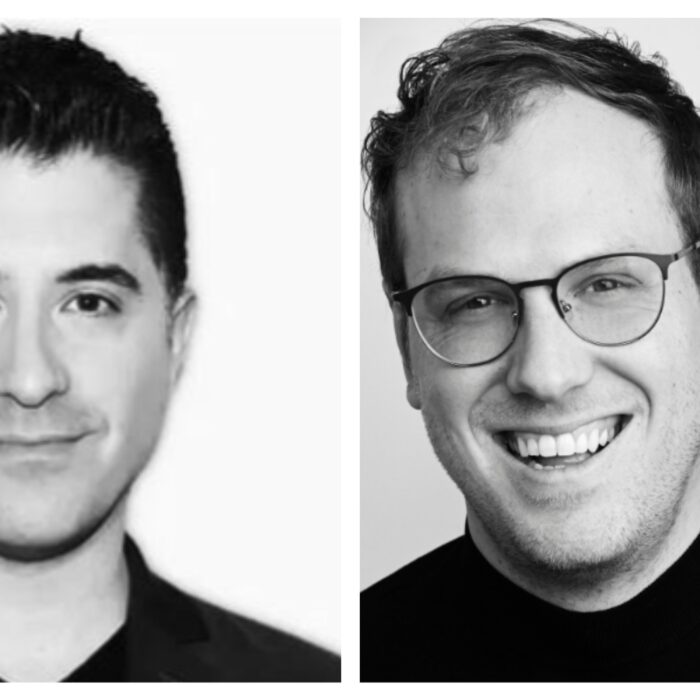
Q & A: ASL-Opera’s David Boles on the Importance of Inclusion for the Deaf Community in Opera
By David SalazarThere’s no secret that when opera becomes a point of mainstream conversation, there is a perception of the art form and its industry as being insular. Even elitist.
It’s a mindset and bias that the industry itself has sought to course correct in recent years with independent opera companies working to create more inclusive works by a diverse array of creators and performers. The search for greater inclusivity has even spread to the most notable companies. Late last season, the Met Opera, arguably the most renowned opera company in the world, announced its intent to focus future programming on newer operas to bring in a wider array of audience members.
Of course, despite even their best efforts, not everyone will get it right and some efforts can’t possibly bridge gaps to every group of people.
But David Boles believes one group of people in particular is receiving no attention– the Deaf community.
For some, that might raise a number of questions, particularly given the preponderance of music in opera. But Boles doesn’t seem that way.
OperaWire: Tell me about ASL-Opera. What is the mission of this project?
David Boles: The mission of the ASL-Opera.com project is two-pronged. First, to demonstrate to Hearing people that the Opera can be open, and inclusive for Deaf audiences. Second, to open the pathways to finally welcoming Deaf audiences into the Opera performance community – from which they have historically been discouraged from attending because of an embedded, if unaware, prejudice against their interest.
OW: What are some short-term and long-term goals for ASL-Opera?
DB: Short-term goals are creating awareness and encouraging sensitivity. Opera companies have told us, “the Deaf don’t want Opera” because the Deaf won’t buy tickets and don’t attend performances, so why would the Opera companies go to the trouble of providing interpreted performances for ghost audiences? The answer is the Deaf have never been welcomed into the Opera. Would you be interested in attending the Opera if you were bluntly told you were not welcome, and if you needed a proper accommodation, one would not be provided? Nobody wants to attend the High Art of Human Experience if they are not actively welcomed into the community.
Long-term goals are to make ASL-Opera.com a resource for Opera companies around the world. We can help them plan ways to connect with the Deaf community, and welcome their Deaf audiences to Sign Language interpreted performances. We are a one stop shop for Deaf accessibility and interpretation. Need a performance interpreted for the Deaf? We make that happen!
OW: What was your inspiration for the project?
DB: The inspiration for this project was The Metropolitan Opera on demand streaming service. My wife, Janna Sweenie – who is Deaf, and who is the featured performer of our ASL-Opera.com interpreted videos – enjoy the idea of how Opera can help heighten human sensitivity, and we were excited to finally be able to regularly afford to “attend” the MetOpera via their online streaming service! We were disappointed that the MetOpera streaming shows were libretto-only open captioned in English, and none of the interstitial content was closed captioned. It was a big wake up call for us that, even outside of the theatre, the Deaf were still being ignored when it came to inclusion.
We don’t do “separate, but equal” in America anymore, and going halfway to Deaf inclusion is not actual inclusion at all. This isn’t an all or nothing issue, this is an “equal and equitable” issue where everyone in the theatre, or watching on screen, is completely included as much as possible. The trouble comes when what is possible is not actually attempted when it is possible.
OW: How did you personally become involved in being an activist for bringing opera to the Deaf community?
DB: For over 35 years, Janna and I have advocated for education and inclusion when it comes to the Disabled and the Deaf community. We created the first online American Sign Language learning portal – HardcoreASL.com – in 1996. We have written several ASL books together. Janna is Deaf. I am Hearing.
Janna has trained Broadway ASL interpreters at the Juilliard School. Janna has interpreted for Broadway shows. For 45 years she has taught ASL in the New York City area. Her day job for the State of New York is helping disabled people find jobs. All Broadway shows have had ASL interpreted performances since 1980.
On my Human Meme podcast, and on my Boles.tv live stream, I advocate for disability rights, and to better help educate average people to be more aware of issues of inclusion, and exclusion, and to confront what prevents us from all becoming one in a shared society. I also created the CUNY-SPS ASL program of study when their focus was on educators and not business training.
OW: What is your history with opera and with the deaf community?
DB: We are new to this endeavor because, historically, the Deaf have not been welcomed into Opera houses. It was that realization that the last great frontier of inclusion is the Opera stage. You see many Opera companies expanding from being Euro-centric in casting and staging to becoming more culturally adaptable and racially diverse on stage. That is a wonderful happening, and we want the Deaf to be included in that accessibility expansion.
Too often, we hear that the English libretto captions are enough for the Deaf, and that just isn’t true. ASL is not English. ASL has its roots in French. In our ASL interpretation, we take the English translation and visually modify it into an interpretive performance for the eye, and that takes time and diligence. It isn’t enough to simply do one thing for inclusion, you often have to do 10 things to complete the inclusion.
There are no incremental steps to inclusion – you either are inclusive or you are not. You don’t start small now with the end idea of total inclusion sometime in the future. You leap forward today, and you create complete accessibility and inclusion by default, the first time. Either the Deaf are included, or they are not. You can’t place the Deaf in a rehearsal hall, or in a side room, and interpret a few arias and consider that compliance with the human condition. It is not. It’s a cruel joke on those Deaf who want to experience the same visceral thrill of a live Opera performance in a theatre, with everyone else, in real time.
OW: What do you feel is lacking in the opera community with regards to including the deaf community and what do you think can be done? What can the leading opera companies do to be more inclusive and supportive?
DB: Right now, there is a general dismissive attitude from the old guard who feel it is their job to protect the aesthetics of the Opera performance. They think ASL interpreters ruin the look and feel of the live performance event. They worry about what Hearing people in the audience will think with ASL interpreters in the theatre. They don’t want change. They don’t want to make it right. Sometimes you have to spend money to include people, and so the budget issue is used to deny accessibility.
They just want to keep on doing what they have always done – and that’s where ASL-Opera.com steps in to step up – it is our job, our duty, and our moral mission to push them to do the right thing. Good things aren’t easy. Right things aren’t simple. Sometimes there is pain and discomfort in doing what’s best for the Deaf, and not just what’s easiest for you.
Opera companies need to open up and confess there are things they don’t know about the Deaf and don’t know how to solve. There’s nothing wrong in asking for help. You can’t get a “yes” if you never ask. Don’t decide Deaf people don’t like, or don’t want Opera, because many of them have never been exposed to the experience, let alone even the idea. How can you want what you don’t know exists? That can, and must, and shall be, fixed.
Here’s an example that rings too terribly true. I recently visited my medical doctor for a checkup. He’s 85 -years-old and he’s what some may call the stereotypical Successful White Male in New York City. A lot of Opera companies probably have administrative decision makers who match him in tone and timbre.
At the end of my examination, my doctor asked me what I was up to now, and I told him about ASL-Opera.com and our effort to bring ASL interpreted performances to Deaf audiences.
He immediately declared, shaking his finger at me, “The Opera is not for the Deaf!”
I couldn’t believe this successful, and highly educated man that I respected, was speaking so cruelly and shallowly out loud; but I also realized what he said was likely what others in positions of power at Opera companies may think, but never express, except by inaction against the punishing norm.
I asked him why he didn’t feel the Deaf belonged at the Opera.
He confidently told me, “Opera is about music and singing and the Deaf can’t hear any variation of that tone, so why bother?”
I explained to him that, through ASL, the tone and intention of a song can be visually interpreted – in hand pictures – for the Deaf so they, too, can be included to enjoy the performance. The Deaf hear through their eyes. Opera is more than just singing and music. Opera is about revelation, depth, and joy and mourning and grief – and the Deaf can, and must, be welcomed into sharing that important catharsis, just like everyone else in the theatre.
My doctor stared back at me, unconvinced.
I continued.
“Look,” I said, “Let’s take your logic to the next step. What about Helen Keller? If we follow your thinking – Opera is not for the Deaf – what would you have said to Helen Keller, who was Blind and Deaf? Would you have said, ‘the world is not for Helen Keller! She can’t see or hear and we live in a visual and auditory world! I will not welcome Helen Keller into our community, I will not include her as a person in society. Helen Keller can just stay in the dark and live there without a language, without human interaction, without any way to communicate outside her own mind since that’s who she was born to be.’”
I told my doctor I knew he didn’t believe that about Helen Keller. I said I knew he would not want Helen Keller disallowed from society just because of her disability – so, I asked, why was he making a blanket declaration that the Deaf don’t belong at the Opera?
He looked at me, and said, “You’ve given me something to think about.” And he left the exam room.
I accepted his new declaration as a tiny win.
That’s all we can ask these Opera companies to consider right now. Ask them to think about it. Ask them to wonder about where they are and where they plan to take us in the future. Will they move forward to include everyone in performance, or will they just decide some people are invited and other folks are never welcome? The world is in their hands for the crushing, or the welcoming.
If any Opera company would like to discuss these issues, ASL-Opera.com is open, ready, willing, and waiting to help them know how to make what’s next, a reality for everyone.


